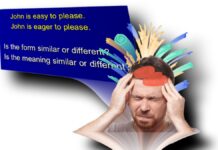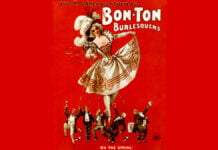Irony is a literary and rhetorical device where there is a contrast between expectations and reality. It’s when the intended meaning of words is different from the actual meaning or a situation turns out to be the opposite of what was expected. The word irony comes from the Latin ironia, meaning “feigned ignorance”, and previously from the Greek eironeia. Eiron, a Greek comic, was an intelligent underdog who used his wit to triumph over the egotistical character Alazon.
Irony can serve various purposes, such as creating humour and suspense, emphasizing a point, or adding depth and insight into a situation by highlighting the discrepancy between appearances and reality. By highlighting the paradox of a situation or action, irony draws attention to a plot point, character trait, or thematic argument.
Irony is of three types:
- Verbal irony
- Situational irony
- Dramatic irony
Verbal Irony
Verbal irony is the expression of one’s meaning using language that normally signifies the opposite, typically for humour or emphatic effect.
Verbal irony occurs when the literal meaning of what is said is different from or the opposite of what is meant. The speaker intends to be understood as something that contrasts with the literal or usual meaning of what they say. Verbal irony is often used to convey complexity, criticize, or amuse.
For instance, if someone has a day full of unfortunate events and says, “Well, this has been the best day ever,” they employ verbal irony because their words express the opposite of their actual experience and likely feelings about the day.
Verbal irony can be subtle or obvious and range from light-hearted quips to biting sarcasm, where the speaker intends to mock or convey contempt. It relies on tone of voice, context, and shared understanding between the speaker and the listener for its effect. Understanding verbal irony requires recognizing the speaker’s true intent beyond just words, relying on social cues, intonation, and situation. It is a versatile tool that can be used both for comedic and critical commentary.
Dramatic Irony
Dramatic irony is a literary technique originally used in Greek tragedy, by which the full significance of a character’s words or actions is clear to the audience or reader, although unknown to the character.
Dramatic irony is common in plays, movies, and books, enhancing the audience’s engagement by making them an ‘insider’ to the plot’s secrets or upcoming twists. This device is especially prominent in tragedies and suspense and in genres that rely on character-based misunderstandings, like romantic comedies. The discrepancy between the characters’ understanding and the audience’s knowledge creates tension, humour, or poignancy.
Examples of dramatic irony include:
- In Shakespeare’s “Romeo and Juliet,” the audience knows that Juliet is alive, as she has taken a sleeping potion. However, Romeo does not and believes she is dead, leading to his tragic suicide.
- In horror movies, the viewer often knows the villain’s location when the protagonist does not, creating suspense as the characters unknowingly approach danger.
The effectiveness of dramatic irony relies on the storyteller’s skill in conveying enough information to the audience for them to grasp the implications while keeping the characters in the dark until the crucial moment. This creates a bond between the storyteller and the audience, as they are complicit in the knowledge that outstrips the characters’ awareness.
Situational Irony
Situational irony is a state of affairs or an event that seems deliberately contrary to what one expects and is often wryly amusing as a result.
It refers to a discrepancy between the expected result and the actual outcome or between appearance and reality. It occurs when actions or events have the opposite effect from what is anticipated or what seems appropriate.
This form of irony emerges from the difference between what the audience or the characters think will happen and what does happen. Situational irony is often associated with a twist or unexpected turn of events. The potency of situational irony comes from its surprise factor, which can provoke laughter, shock, or contemplation.
Some examples of situational irony include:
- A professional swimmer drowning in a pool while the beginner swimmers remain safe.
- A fire station catching fire, as it is the last place one would expect to burn down.
- An English teacher making numerous spelling and grammatical errors in a letter.
It’s worth noting that situational irony is not merely bad luck or an unfortunate event. It occurs when an apparent reversal of what was expected reveals a deeper layer of meaning in life’s unpredictable nature. Situational irony can be an effective tool in literature and daily life to highlight the contrast between intended outcomes and actual results.






























